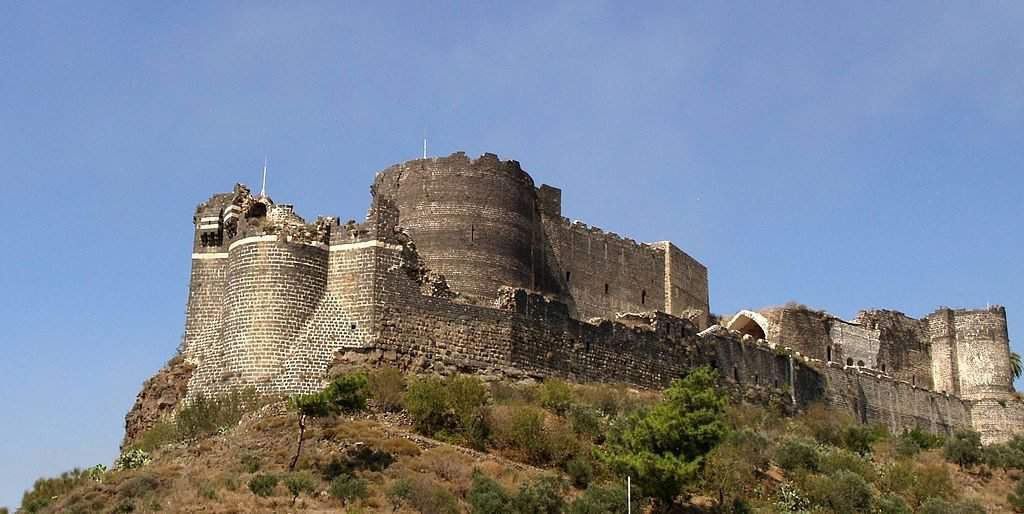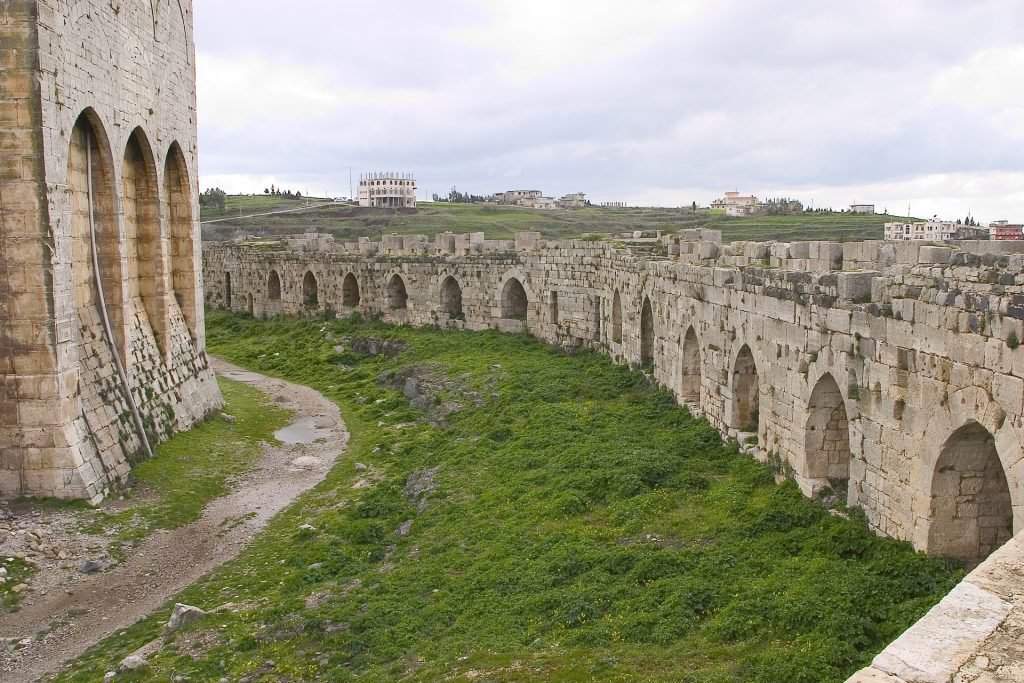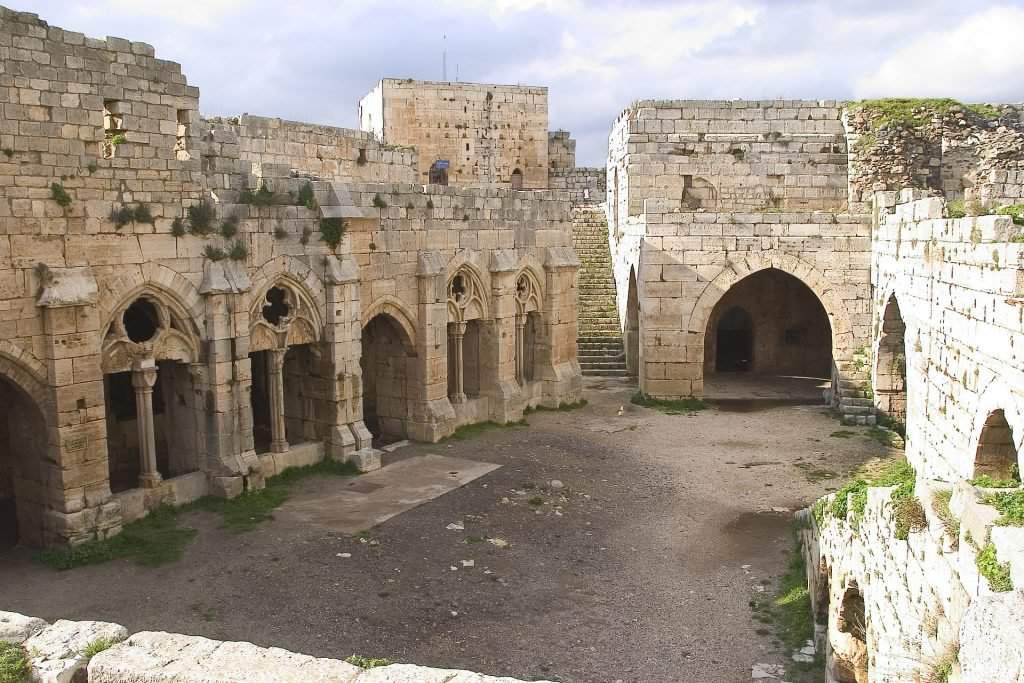Change language:
Hungarian archaeologists among the last remaining team in war-torn Syria

While civil war rages in Syria, a Syrian-Hungarian archaeological mission works tirelessly to restore the fortresses of the former Holy Land, the Krak des Chevaliers and Margat castles, so they can be opened to tourists again. The team has lost Syrian colleagues to the fighting, although their research is confined to an area where incidents are very rare, inforadio.hu writes.
“The two castles – Margat and Krak des Chevaliers – are located in the coastal region of Syria, and both of them were built by the Knights Hospitaller in the 12th and at the beginning of the 13th century, respectively. Margat and Krak des Chevaliers are among the biggest castles, there weren’t any fortresses in Europe in this era which could compare in size and detail. Margat castle is exceptionally abundant in archaeological finds, and no one has done any research here before,” said Balázs Major, expert in Arabic studies and lead archaeologist of the mission. He was also the recipient of the European Parliament’s European Citizens’ Prize this year.
He emphasized that the most important result in his opinion is a very cooperative team of Hungarian and Syrian colleagues.
“The first dig took place in 2007, and in the following years, around 130 Hungarian archaeologists have worked on the castle,” he said.

The last ones to stay
“We are the only team out of 150 international archaeological missions who didn’t leave,” said the archaeologist. “We told ourselves that, if we could enjoy the Syrians’ hospitality in peace time, then it’s our duty to support them during the hardships as well.”
“Especially since, contrary to popular belief, the majority of Syrians do not want to leave their country, but try to stay, to rebuild, and prepare for the future.”
“Those millions whose houses have been destroyed are waiting in the neighbouring countries or in the closest possible locations to return home. So it is only a small percentage of the population who left for Europe. We’re not the only optimists, many hope for a better future.”

Inconceivable damages
The scientist also talked about the immense amount of destruction the war has done and continues to do in Syria.
“The majority of the country is destroyed to a degree which is basically inconceivable for Europeans,” he said.
“More than 10 million people have become homeless. Most of them have sought refuge within Syria, including the areas where we work,” he said. It often goes unmentioned that there are refugee camps not only in Turkey, but in Syria as well, and these get almost no help at all, he added.
[button link=”https://dailynewshungary.com/hungarian-speleologists-worlds-deepest-cave/” type=”big” newwindow=”yes”] Hungarian speleologists in world’s deepest cave[/button]
Fortunate and less fortunate castles
“Not all parts of the country have been affected. In the coastal region, where Margat castle is located, there haven’t been hostilities in the past 5 years. This is a fairly safe and well guarded area. If it weren’t for the refugees, the extreme poverty, and the photos of those who’ve died displayed along the roads, it wouldn’t even feel like there is a war going on in the country,” he said.
According to inforadio.hu, the Krak des Chevaliers (pictured in the cover photo), a UNESCO World Heritage Site, was taken by rebel forces three years ago, who occupied the castle and the nearby village for one and a half years. The Syrian Army managed to recapture the castle and the village on March 20, 2014.
“The castle suffered serious damage, we were asked to help assess these, and plan the reconstruction of the building, so it could be opened again, since everyone here is already preparing for the future after the war. We were working primarily on the damage assessment of the inner courtyard.”

Tragedies
There are hardly any families in Syria who have not lost a close relative, the archaeologist said.
“Luckily, most of our Syrian colleagues don’t have to fight in the war, the majority of our team members are working as we speak – sometimes among incredible circumstances. But unfortunately we have lost acquaintances as well.”
“One of our dearest students, a young Christian man from the University of Damascus, died last year.”
Most of their fallen colleagues lost their lives at archaeological sites, not on the front. But in their area these incidents are very rare.
Universities and education
The Syrian educational system has suffered the war as well. The universities in Aleppo, Damascus, and Homs have all sustained considerable damage, but despite the conditions, they still try to function. In the last 5 years more than 120 students and teachers died at the University of Damascus when several university buildings were hit by rockets.
“In spite of this students still attend university for which they deserve great respect,” said Balázs Major.
Moreover, more than half of the Syrian population have lost their homes, and most of these people have no choice but to live in refugee camps. “Several million children cannot get a proper education,” said the archaeologist.
Copy editor: bm
Source: inforadio.hu







